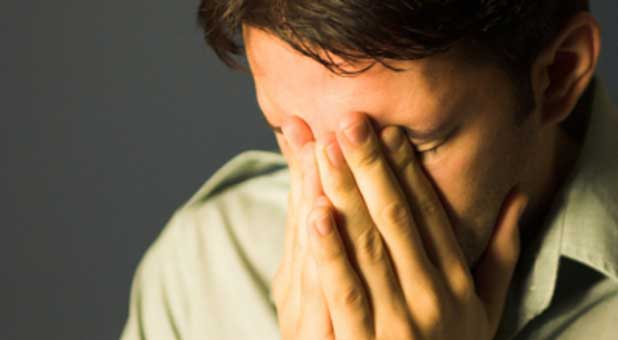I can’t fathom what it would be like to have my family murdered in front of me, then to be beaten, shocked, starved and imprisoned for believing in Jesus. Yet we’ve all heard of believers in other countries who have encountered such horrific atrocities. Their testimonies remind us that Jesus’ promise that “you will be handed over to be persecuted and put to death, and you will be hated by all nations because of me” still rings true 2,000 years later (Matt. 24:9, NIV).
I’ve had the honor of meeting persecuted church leaders from places such as China, India, Iran and Indonesia, and I’ve noticed a common characteristic among them: None of them prays for God to stop the persecution. Not one. In fact, I have yet to hear a single account of a persecuted believer asking God to remove his or her oppressor. In Nigeria, when more than 2,000 Christians were killed in clashes with Muslim extremists within a few months, Open Doors USA President Carl Moeller commented that the local believers “don’t ask for us to pray that persecution would stop. They pray instead that they would be strong in the midst of persecution.”
Brother Yun, the well-known Chinese church leader, says in his book Back to Jerusalem, “I correct Western Christians who tell me: ‘I’ve been praying for years that the Communist government in China will collapse, so Christians can live in freedom.’ This is not what we pray! We never pray against our government or call down curses on it. … Instead of focusing our prayers against any political system, we pray that regardless of what happens to us, we will be pleasing to God. Don’t pray for the persecution to stop! We shouldn’t pray for a lighter load to carry, but a stronger back to endure!”
It’s easy for us in the West to romanticize the persecuted church when, in fact, it has its own issues. And God certainly doesn’t require every believer to be tortured and imprisoned just to prove his desire for Him. Yet if Christ didn’t just suggest but promise that those who follow Him would be persecuted (see Mark 13:11-13; 2 Tim. 3:12), American Christians must ask some tough questions about how we pray and what exactly we’re praying for.
I’ve attended many Christian gatherings where leaders prayed against certain political candidates, parties or social organizations. In their zeal to “defend the biblical foundation of our nation,” these believers spoke of how vital it is that Christians stand up against the attacks and stem the tide of secularism in our nation. And I totally agree. Following Jesus doesn’t mean you have to be a pacifist who yields to any cultural or political onslaught.
But at what point do we ask ourselves if God could be using a rise in cultural hostility toward believers to refine the American church and produce fruit that will last far beyond an evangelical-friendly administration or a pro-Christian culture? Which is worse: to die while burning with the gospel’s flame in a country governed by overt Christ-haters, or to live with a smoldering wick in a “post-Christian nation” that now classifies God as just another spiritual option? Christians don’t need to become illegal in this nation for the church to become the bride Jesus is waiting for—but if that’s what it takes, would God not allow it?
Given this, we must view our ongoing cultural shifts through the lens of the Holy Spirit. How are we, as the American church, praying through this “post-Christian” era in which, yes, opposition toward us is on the rise? Are we lobbing prayer-curses at whatever opponents we can see in the natural realm, or are we correctly using the authority God gave us to pull down strongholds and principalities in the spirit realm?
God is eternally patient and loving, and He’ll use whatever means necessary—yes, even persecution—to produce a bride fit for His Son. A mature church will pray the Father’s will, not our own. When Jesus prayed in the Garden of Gethsemane hours before the ultimate persecution of the cross, He didn’t pray against His accusers but asked that the Father’s divine purposes be accomplished.
We must remember this, because as our culture becomes increasingly godless, so will its intolerance of believers. Sadly, the church has grown so accustomed to being tolerated that we’ve rarely had to grapple with the “fellowship of His sufferings” (Phil. 3:10, NKJV). Jesus promised persecution. Let’s glorify Him by embracing this calling—starting with how we respond to persecution in prayer.
Marcus Yoars is the editor of Charisma. Check out his blog at marcusyoars.com or connect with him via Twitter @marcusyoars or facebook.com/marcusyoars.
See an error in this article?
To contact us or to submit an article





















